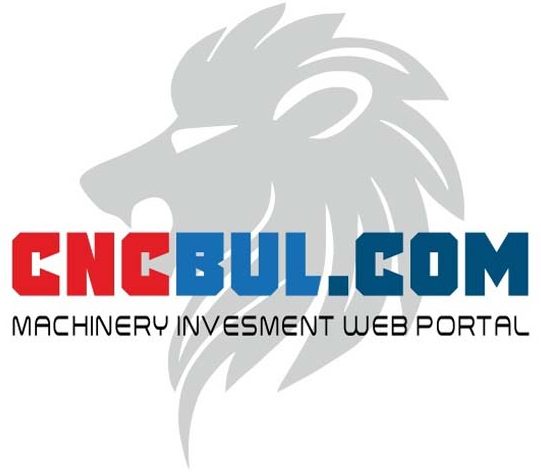Is there a niche area left in the CNC Machine Tools machinery industry?
The CNC machine tools industry is vast and competitive, but there are still niche areas that remain underexplored or present significant growth opportunities. Identifying and capitalizing on these niches can provide a competitive advantage. Here’s a detailed exploration of some niche areas in the CNC machine tools industry:
1. Micro-Machining and Nano-Machining
Micro-Machining
- Description: This involves machining extremely small parts with high precision, often used in industries such as medical devices, microelectronics, and aerospace.
- Opportunities: As products become smaller and more complex, the demand for micro-machined parts grows. Specialized CNC machines that can operate at micro scales with high precision and minimal errors are increasingly sought after.
Nano-Machining
- Description: A more advanced form of micro-machining, nano-machining works at the nanometer scale and is essential for the semiconductor industry and advanced scientific research.
- Opportunities: Developing CNC machines capable of nano-level precision can open new markets in nanotechnology, biotechnology, and material sciences.
2. Hybrid Manufacturing Systems
Description
- Hybrid Machines: Combining additive manufacturing (3D printing) and subtractive manufacturing (traditional CNC machining) in a single machine.
- Benefits: These machines offer the flexibility to produce complex parts with both methods, allowing for intricate internal structures with high precision external features.
Opportunities
- Industry Adoption: Aerospace, automotive, and medical industries are increasingly adopting hybrid manufacturing for prototyping and production of complex components.
- Customization: Providing customizable hybrid machines that cater to specific industry needs can be a lucrative niche.
3. CNC Machines for Composite Materials
Description
- Composite Materials: Materials made from two or more constituent materials with significantly different physical or chemical properties.
- Machining Challenges: Composites often present unique machining challenges, such as delamination and tool wear, requiring specialized CNC machines.
Opportunities
- Growing Demand: Industries like aerospace, automotive, and renewable energy (wind turbine blades) are increasingly using composite materials.
- Specialization: Developing CNC machines specifically designed to handle the unique properties of composite materials can meet the growing industry demand.
4. Multi-Axis and Simultaneous Machining
Description
- Multi-Axis Machining: Involves machining parts with CNC machines that operate along multiple axes simultaneously (beyond the traditional 3-axis).
- Simultaneous Machining: Multiple tools or spindles working simultaneously on a single workpiece.
Opportunities
- Complex Parts Manufacturing: Ideal for industries requiring complex, high-precision parts such as aerospace, defense, and medical.
- Efficiency Gains: Reduces the number of setups and increases machining efficiency, offering significant productivity improvements.
5. Smart and Connected CNC Machines
Description
- IoT and Industry 4.0: Integrating IoT capabilities into CNC machines for real-time monitoring, predictive maintenance, and enhanced automation.
- Smart Features: Advanced data analytics, AI-driven optimizations, and remote monitoring capabilities.
Opportunities
- Operational Efficiency: Helps manufacturers increase efficiency, reduce downtime, and optimize production processes.
- Data-Driven Insights: Providing actionable insights and remote control capabilities can be a significant value addition for modern manufacturing facilities.
6. Custom and Modular CNC Machines
Description
- Custom Machines: CNC machines tailored to specific customer requirements.
- Modular Design: Machines designed with modular components that can be easily reconfigured for different tasks.
Opportunities
- Flexibility: Offers manufacturers the flexibility to adapt to changing production needs without significant investment in new machinery.
- Market Differentiation: Provides a competitive edge by addressing specific customer needs more effectively than standard machines.
7. Eco-Friendly and Energy-Efficient CNC Machines
Description
- Energy Efficiency: Machines designed to consume less energy and reduce operational costs.
- Eco-Friendly Materials: Use of sustainable and recyclable materials in machine construction.
Opportunities
- Sustainability: Growing emphasis on sustainable manufacturing practices makes this a promising niche.
- Regulatory Compliance: Helps companies comply with increasingly stringent environmental regulations.
8. CNC Machines for New and Emerging Materials
Description
- Advanced Materials: Machining new materials such as high-entropy alloys, shape-memory alloys, and bio-compatible materials.
- Challenges: These materials often require specialized machining techniques due to their unique properties.
Opportunities
- Research and Development: Collaboration with research institutions and material scientists to develop CNC machines that can handle these advanced materials.
- High-Value Markets: Serving high-value markets such as aerospace, medical implants, and cutting-edge manufacturing sectors.
9. Retrofitting and Upgrading Older Machines
Description
- Retrofitting: Upgrading older CNC machines with modern controls, drives, and capabilities.
- Upgrading: Enhancing existing machines with advanced features such as automation, IoT connectivity, and improved precision.
Opportunities
- Cost Savings: Provides a cost-effective alternative to purchasing new machines.
- Market Demand: High demand from manufacturers looking to extend the life and capabilities of their existing machinery.
10. Educational and Training CNC Machines
Description
- Training Simulators: CNC machines designed specifically for educational purposes with features that help teach programming, operation, and maintenance.
- Safe Operation: Enhanced safety features to prevent accidents during training.
Opportunities
- Technical Education: Partnering with educational institutions to supply training equipment and programs.
- Skill Development: Contributing to workforce development by providing essential skills training.
Conclusion
The CNC machine tools industry continues to evolve with advancements in technology and changing market demands. Identifying and focusing on niche areas such as micro-machining, hybrid systems, smart and connected machines, and eco-friendly designs can offer significant opportunities for growth and differentiation. By leveraging these niches, companies can address specific industry needs, enhance their competitive edge, and drive innovation in the manufacturing sector.

